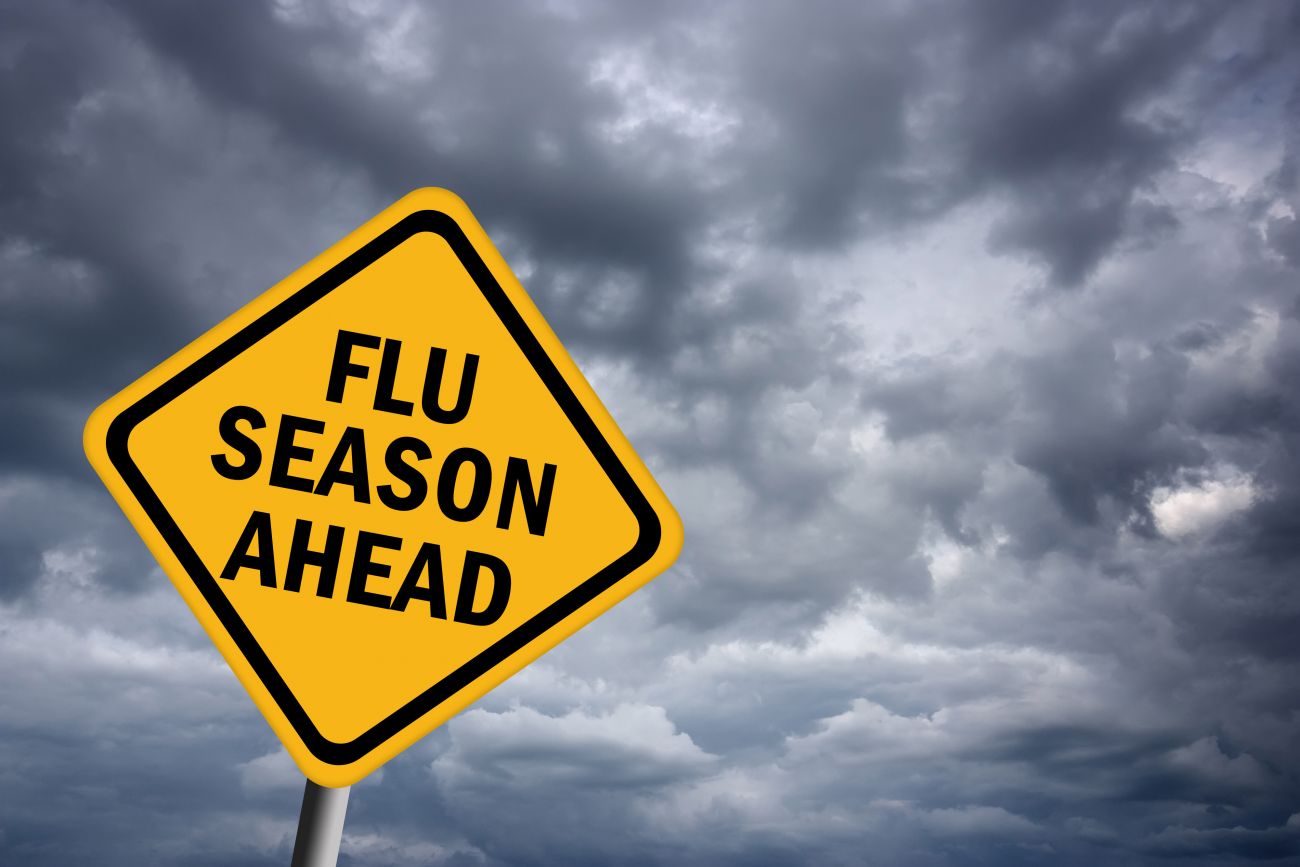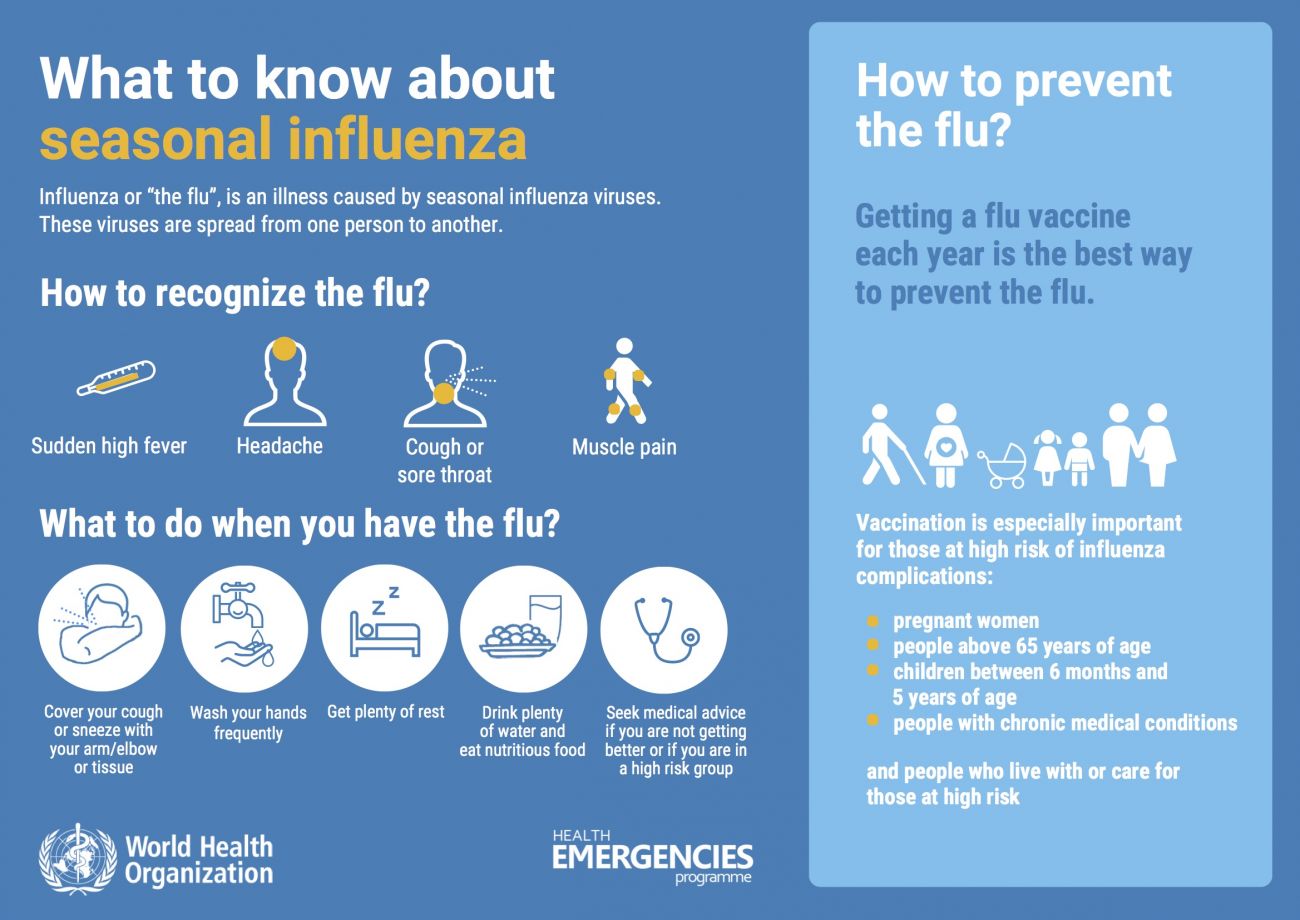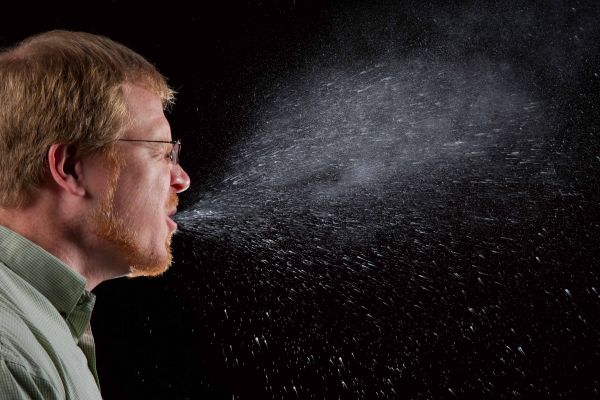We all know what it’s like to get hit by the flu. The muscle aches and fever make us want to stay in bed for a few days until we recuperate. However, for those who are fighting cancer, the flu can lead to far more serious complications. Patients with cancer should take precautions to avoid getting the flu and let their caregiver know if they are experiencing flu-like symptoms.
Cancer patients are more susceptible to the flu because their immune systems can be impaired due to chemotherapy and radiation, and their ability to fight off infection may be weakened. Older patients and those with significant medical problems such as lung or heart disease also have an increased risk of flu-related complications.
Here at Roswell Park, we have respiratory etiquette policies, restricting visitors with respiratory or flu-like symptoms from visiting the wards. They are at risk of transmitting viruses and should not be near patients.
I also cannot stress enough the importance of getting a flu shot. There are benefits for patients to receive flu shots, although the level of protection may not be as high as people with normal immune systems. However, if you are a caregiver or health care worker, you should get immunized not only to protect yourself, but also the patients you treat and care for.
Never miss another Cancer Talk blog!
Sign up to receive our monthly Cancer Talk e-newsletter.
Sign up!Here are some day-to-day tips for cancer patients to help keep them healthy through flu season.
Get a flu shot
A flu shot is one of the easiest ways to reduce the chance of getting influenza, the viral infection known as the flu. If you are a cancer patient and your treatments affect your immune system, the flu shot might not work as well, but you should still get one. (An impaired immune system could mean that your actual immune response to the flu shot may not be as robust as it is for people with healthy immune systems. While you may not get all of the protective benefits of the flu shot, most cancer patients will still get some protection of against influenza.
The next best thing is to have any household members or caregivers also receive a flu vaccine. The flu is contagious from one person to the next; they can’t pass the flu to you if they don’t get the flu.
Wash your hands and use hand sanitizer
Influenza also spreads when you touch something with the virus on it and then touch your mouth, eyes or nose. To fight the spread of these germs, perform proper hand hygiene (e.g., hand washing with soap and water or hand sanitizer) after having contact with your cough or nasal secretions or any contaminated objects or materials. If your hands are visibly soiled, it's best to wash with soap and water.
Watch for milder symptoms
The usual symptoms of coughing, fever and muscle aches may be much more subdued cancer patients with a weakened immune system, so you must be vigilant for any signs and symptoms of the flu. Call your doctor about symptoms out of the ordinary for you, even if it's as small as a running nose or scratchy throat.



